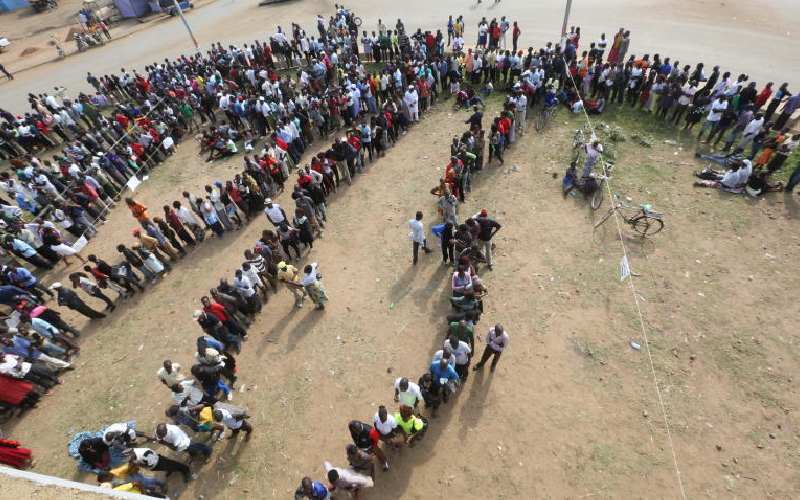×
The Standard e-Paper
Join Thousands Daily

Voters queue to cast their ballots in the General Election on August 8, 2017. [Collins Oduor, Standard]
A society begets the leaders it deserves. In His sovereign nature, the creator of the universe elevated human beings above all other species. For those that believe in the teachings of the scriptures, we are told humans were created in the Lord’s image. Our major distinguishing feature is our brain. Unlike other species, we were given the ability to make choices.